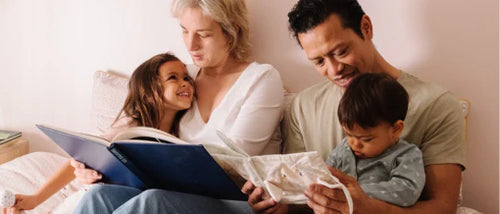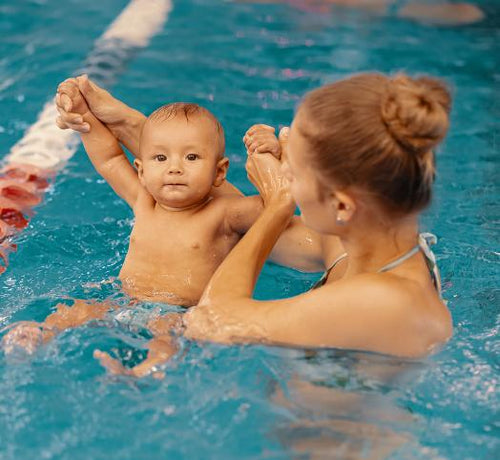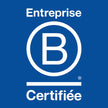Fun and stimulating, baby swimmers encourage toddlers' natural ability to move in the water.
A lovely moment of pleasure shared between parents and children!
After nine months in their mother's womb, all babies are comfortable in the water!
Up to around 1 year of age, they still have the swimming (or apnea) reflex: under water, they spontaneously close their mouth, block their breathing and wave their arms and legs. What if you took advantage of these natural dispositions to offer baby swimming sessions to your little one?
A FULLIFYING ACTIVITY
Offered in many swimming pools, baby swimmers do not aim to learn to swim, but to promote the sensory awakening and motor skills of infants: in the water, they become aware of the contours of their body, learn to move differently and experience new sensations.
This activity also encourages their self-confidence, their autonomy and their sociability thanks to the presence of the group. Finally, it is a special moment of complicity and pleasure shared between parents and children.
What more ?
THE PROGRESS OF THE SESSIONS
Each baby is accompanied by one of their parents (or both), and the group is supervised by a specifically trained lifeguard. The water is preheated to room temperature, between 32°C and 37°C.
Entering the water is done very gently, in your arms, at the pace that suits your child. Once he is comfortable in the water, the lifeguard will suggest that you gradually immerse him under the water while holding him (without ever forcing him), then let go and move a few steps away. : you will then be amazed to see your baby swimming underwater to join you!
Is your baby not there yet? Do not panic ! Several sessions may be necessary to achieve this: each baby develops at their own pace, depending on their age, character and natural comfort in the water.
During the sessions, multiple aquatic learning materials are also offered to toddlers depending on their age: balls, boards, buoys, mats, slides, etc.
So many opportunities to explore new sensations and have fun, with parents or other children.
If your baby shows signs of weariness or if he is cold before the end of the session, do not insist: get out of the water and warm him quickly in a soft towel. Pleasure is the first objective of baby swimmers!
IN PRACTICE
You can start baby swimmers from the time your baby has received his first two injections of compulsory vaccines (DT polio), around around 4 months.
A medical certificate of no contraindication will be required to be able to register it. Remember to bring a waterproof diaper or an anti-leak swimsuit to avoid small accidents in the water.
Sessions last a maximum of 30 minutes up to 18 months, and up to 1 hour between 18 months and 6 years. Beyond that, children can attend real swimming lessons.
Very comfortable in the water thanks to baby swimmers, they will learn to swim even more easily!
At the end of the session, offer your child a breastfeed, a bottle or a small snack depending on their age: these moments in the water require a lot of energy and they risk being hungry.
When you get home, wash him well and moisturize him thoroughly to remove any chlorine residue and soothe and nourish his skin.
Serene and relaxed, your baby will probably ask for nothing better than a good nap to recover!




